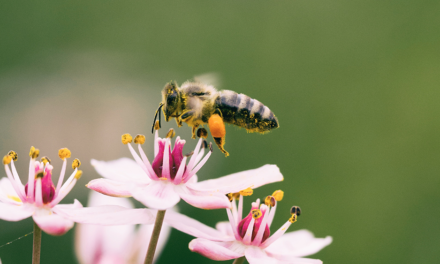Since the 1960s, more and more Americans have begun voicing their concerns about how we’re treating the environment. It would seem that we’re beginning to realize just how much our wellbeing is dependent on our relationship with nature.
So, here’s the bad news: unnatural shifts in ecological balances caused by human activity such as global warming, mass extinctions, and soil infertility are extremely harmful not just to our personal health, but to our survival as a nation as well.
A dying ecosystem

Let’s take honeybees for example. Studies by the University of California show that one out of eight interactions between plant and pollinator is carried out by a honeybee. They’re responsible for the production of most fruits, nuts, seeds, as well as various other plant life, which is how we get food not just for the American population but also for our poultry and cattle stock. This is what makes the honeybee one of the most important contributors to our natural ecosystem, as well as our economic survival as well. Alarmingly, bees are also vanishing rapidly in the U.S. because of the aftereffects of poisonous pesticides, chemicals, and pathogens.
At the same time, these chemical pollutants threaten more than just bees. These substances can cause harm to humans as well, causing headaches, nausea, irritation, breathing difficulties, and various other health complications. What’s worrying is that these harmful chemicals are present in most of our cleaning products like air fresheners, fabric softeners, and toilet cleaners.
What has been done?

One way to solve these problems is by investing national funds into environmental conservation efforts. Sadly, the U.S. government seems keen on spending less in terms of keeping ecological balances intact. In 2017, the Trump administration significantly reduced the Department of the Interior’s (DOI) funding, which is the federal body in charge of conservation and management efforts in most federal lands. In fiscal year 2018, the DOI’s budget was reduced to $11.6 billion. The reduction was based on a proposal that would cut the department’s budget annually by $1.6 billion.
This lack of funding has caused some states to look elsewhere in order to finance conservation projects. In Minnesota, the Environmental and Natural Resources Trust Fund has funded approximately 1000 similar projects since 1991. The contributions, which reach close to $500 million, help preserve Minnesota’s natural resources and were sourced from the state lottery. Meanwhile, ABC detail how the state of Colorado has a similar program, and allots its lottery-gained charitable funds to various wildlife organizations and trusts. Lottoland notes how the U.S. MegaMillions minimum jackpot is $40 million, while its highest ever recorded jackpot was a staggering $1.6 billion. With both lottery providers and winners now providing a steady stream of charitable donations to state-run programs, experts hope that this will go a long way to improving conservation efforts if the national government doesn’t step up.
Environmental obligation
It’s clear that the federal government can and should be doing a lot more in terms of preserving America’s ecological balances, especially considering their direct and long-term impact on the nation’s health. The term “health” here is encompassing – referring to the health of the U.S. economy as well as the general wellbeing of the population. Pollution is what American economists call an externality or “a cost that the responsible entity can escape but that society as a whole must bear”.
With businesses unable to address these problems on their own, the government now has a greater obligation to protect our ecosystems, even if doing so may impact to our short-term economic growth. But instead, the biggest portion of the U.S. annual budget goes to the military and national debts.
It’s clear that government and businesses can’t tackle these ongoing ecological imbalances alone. We must also do our part as citizens to make sure that the world is still habitable not just for honeybees, but ultimately for America’s future generations.











